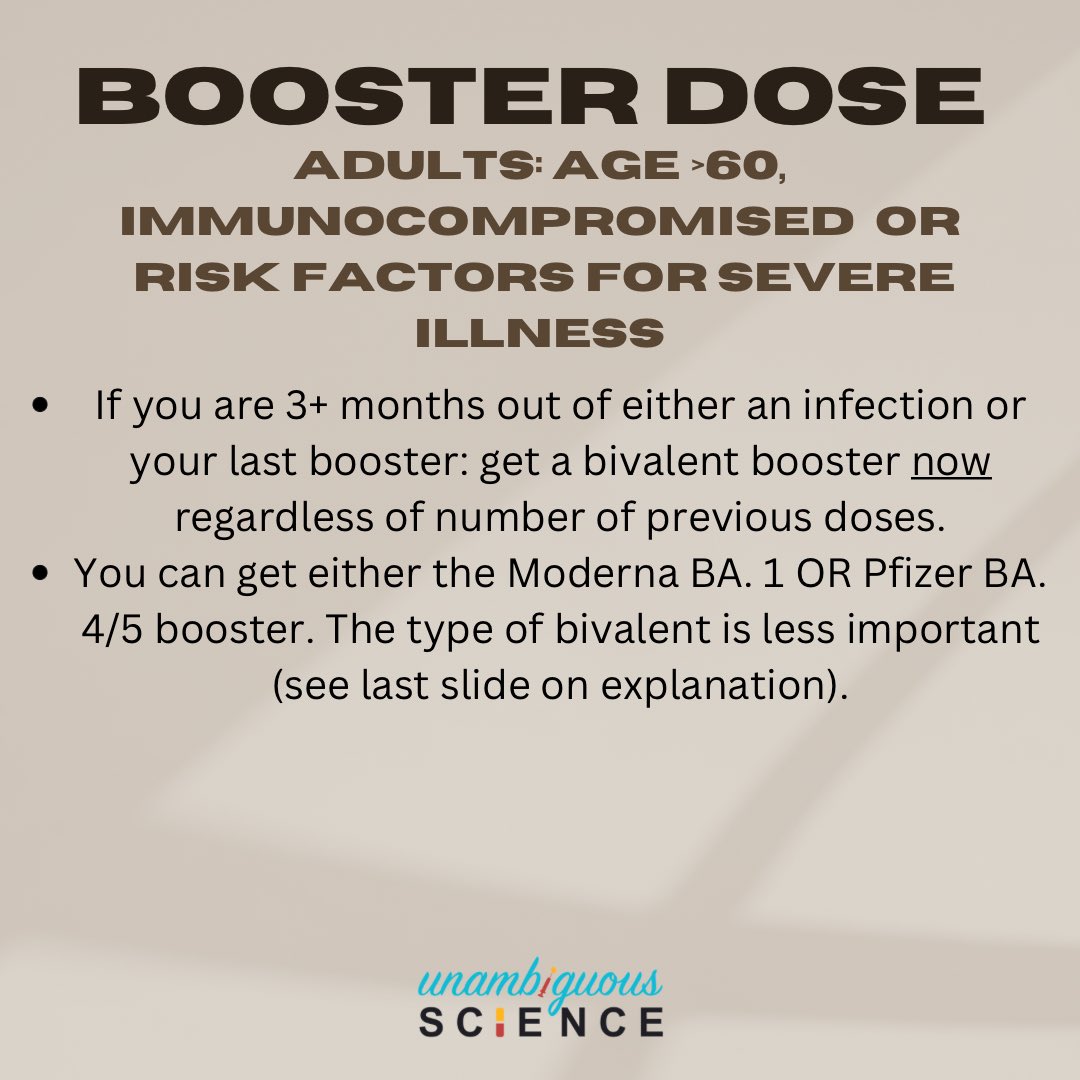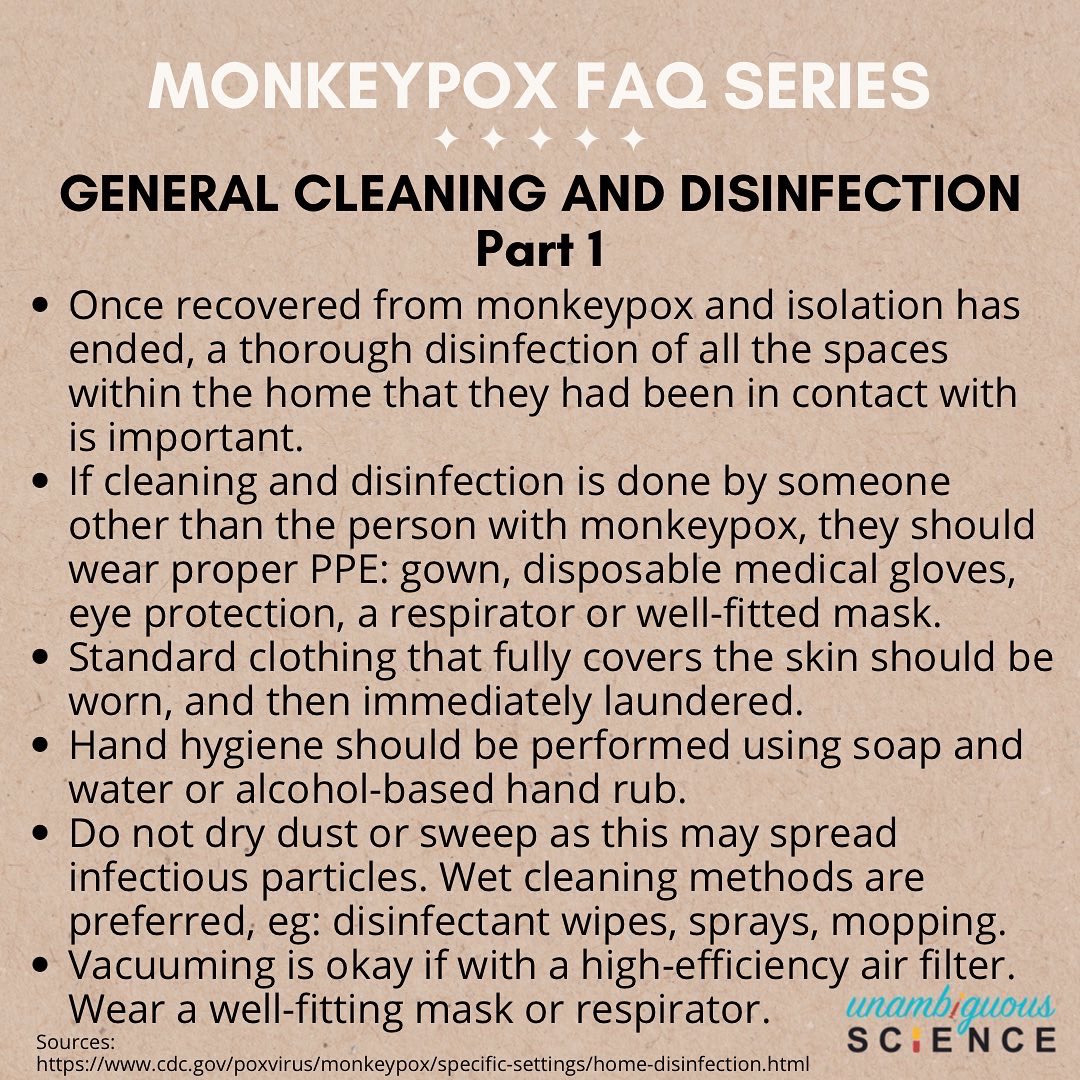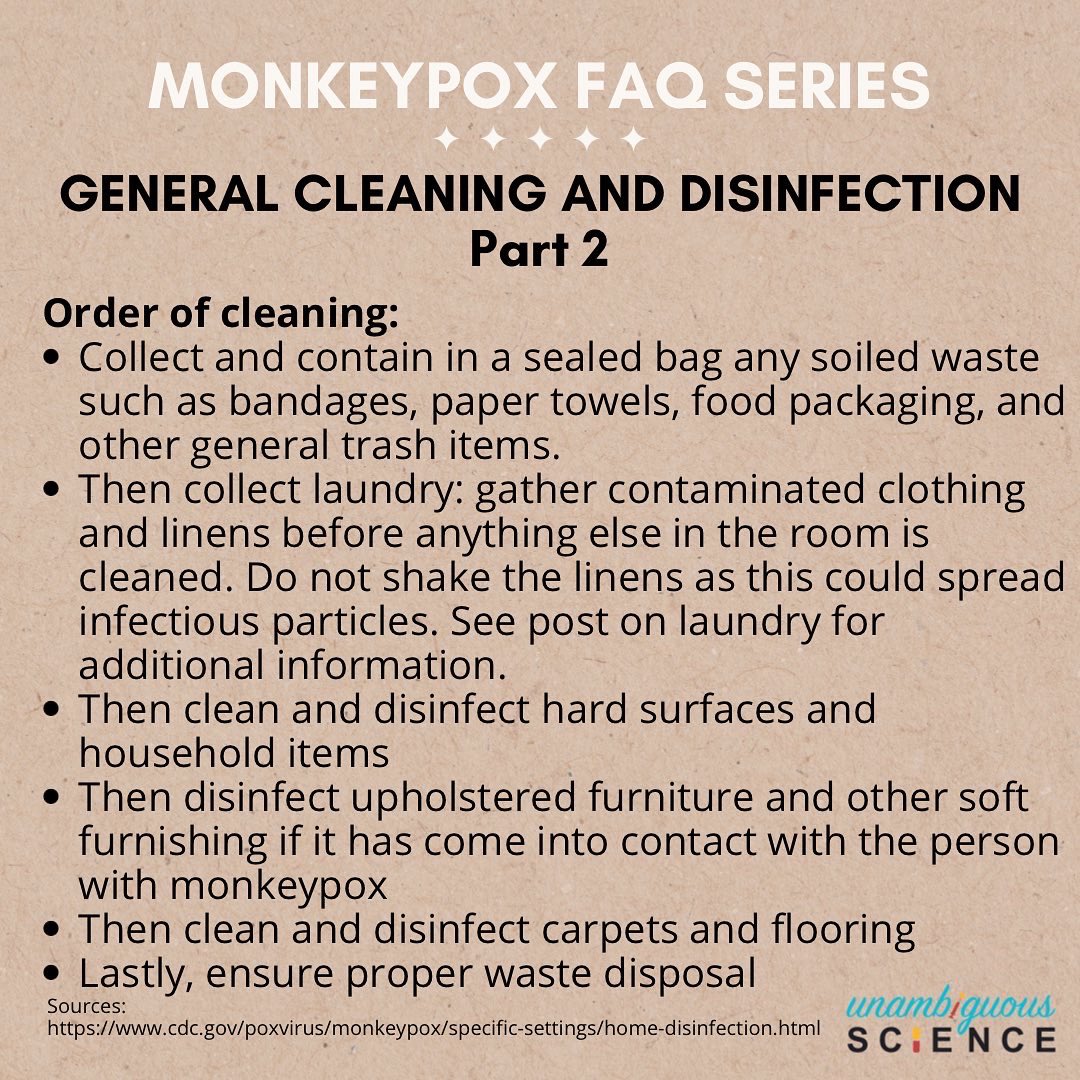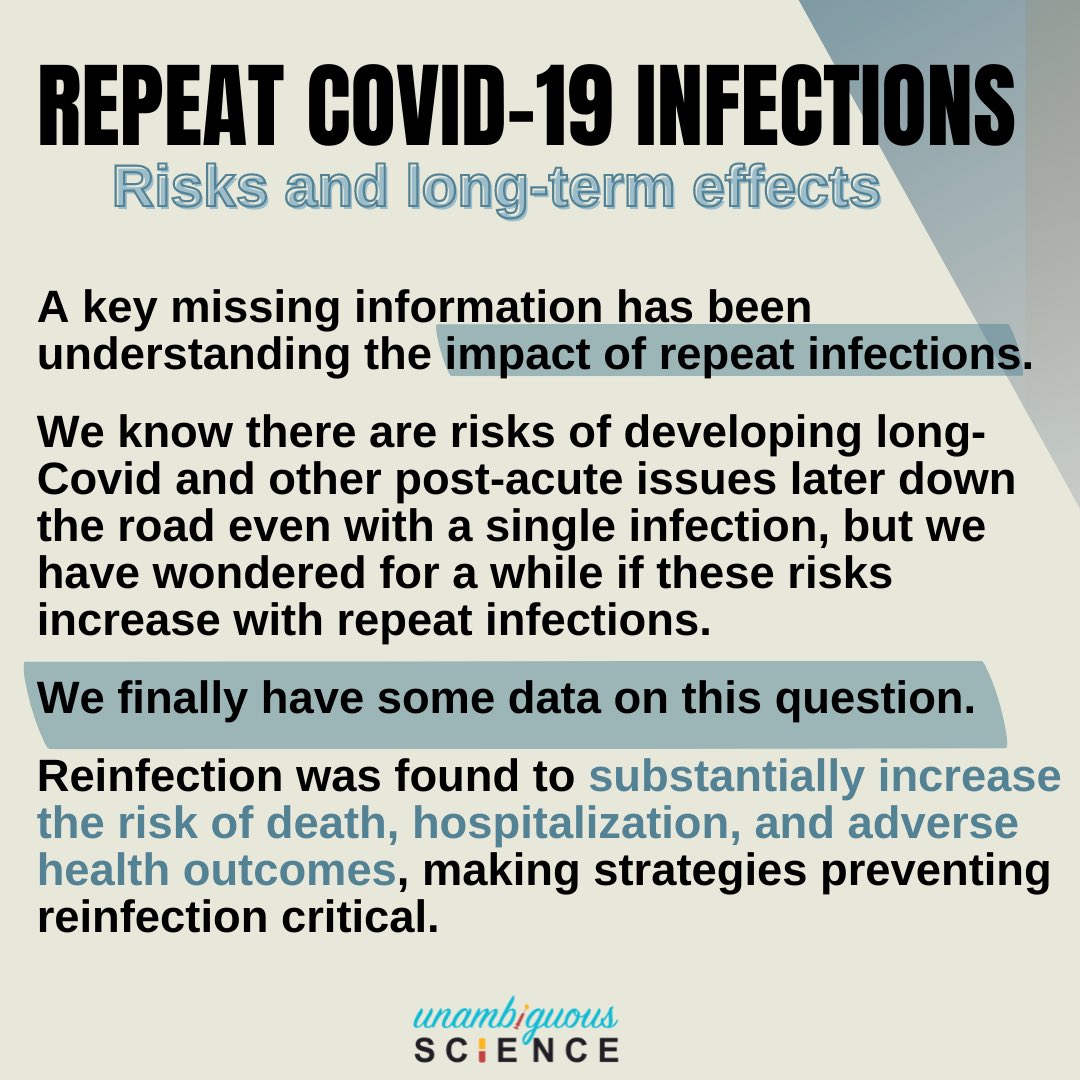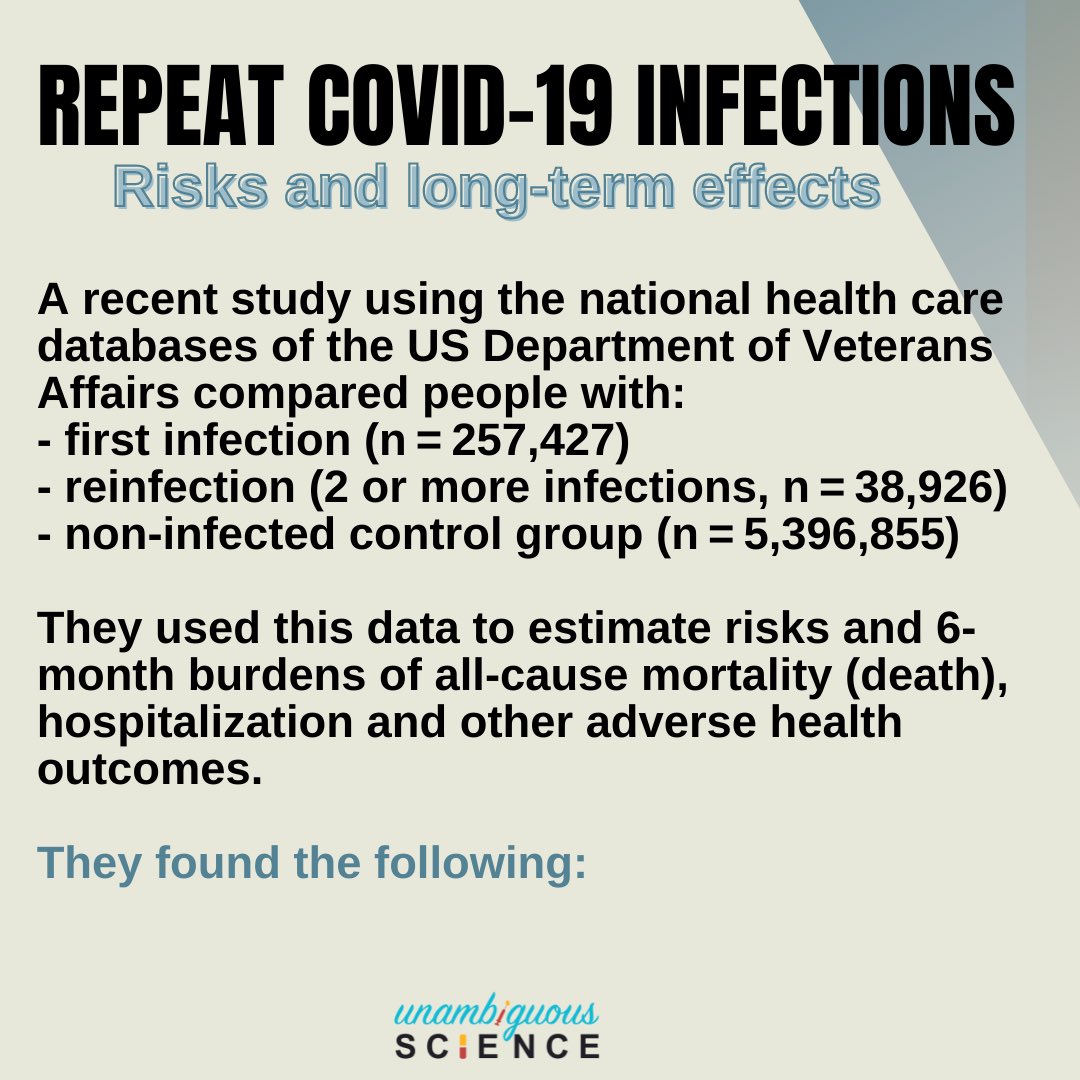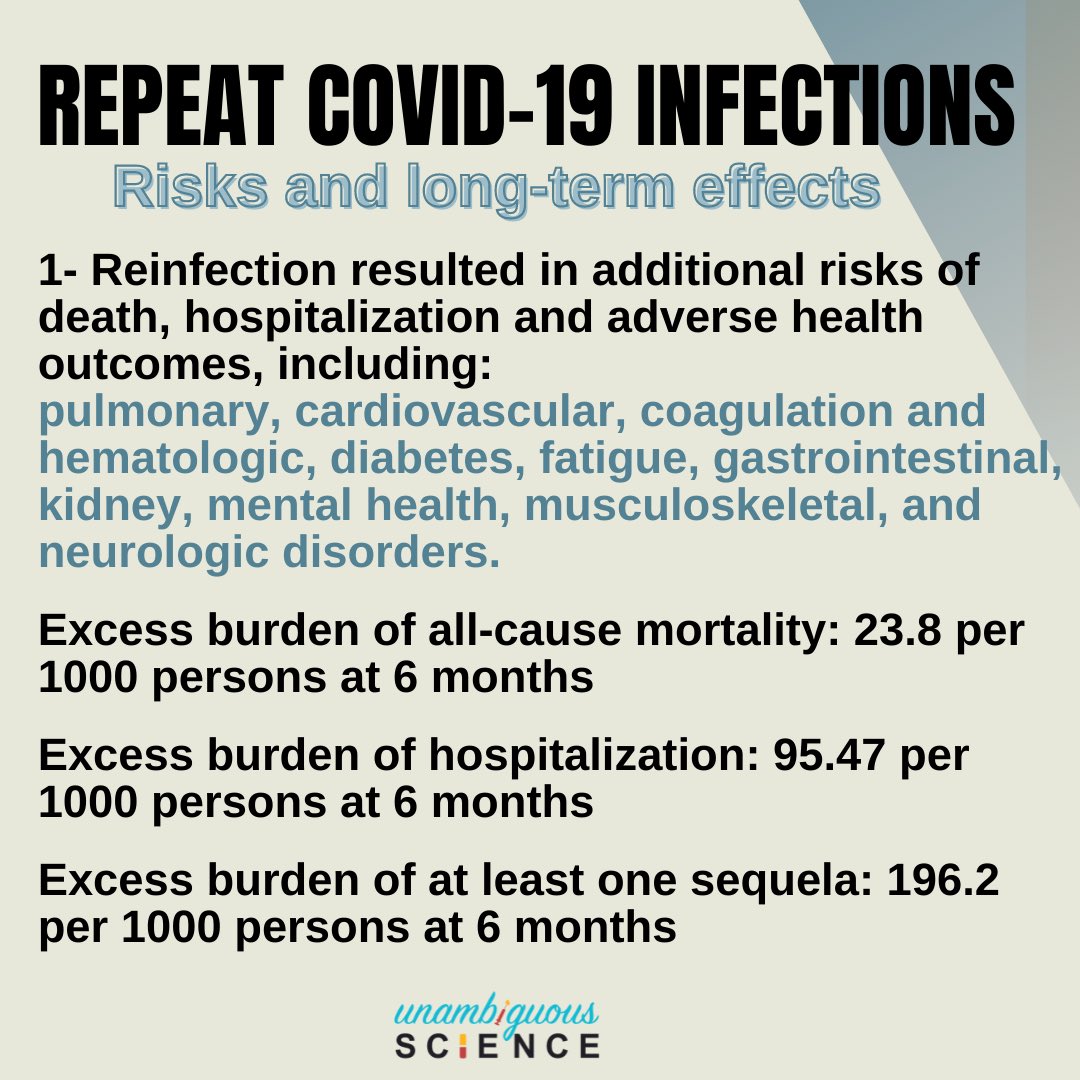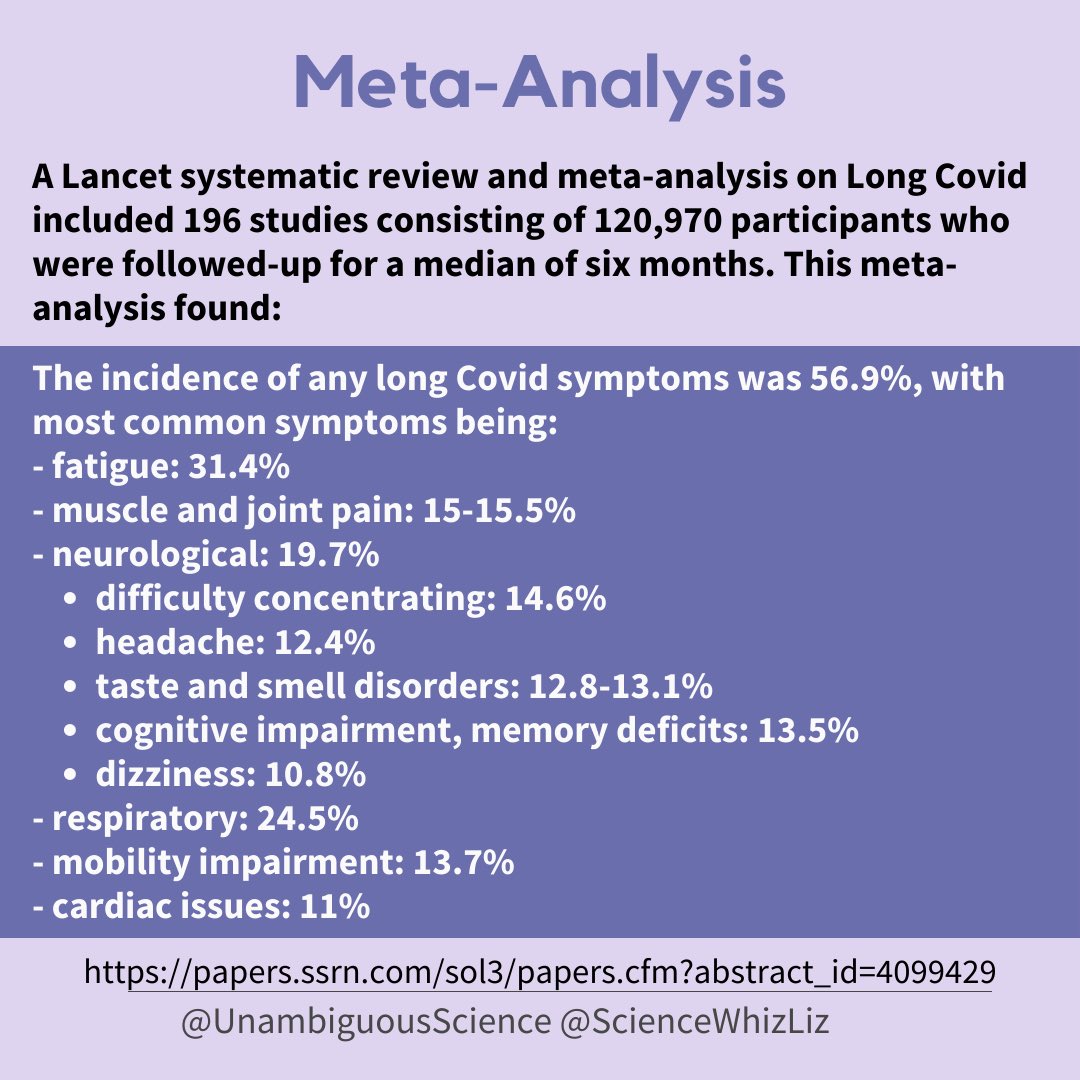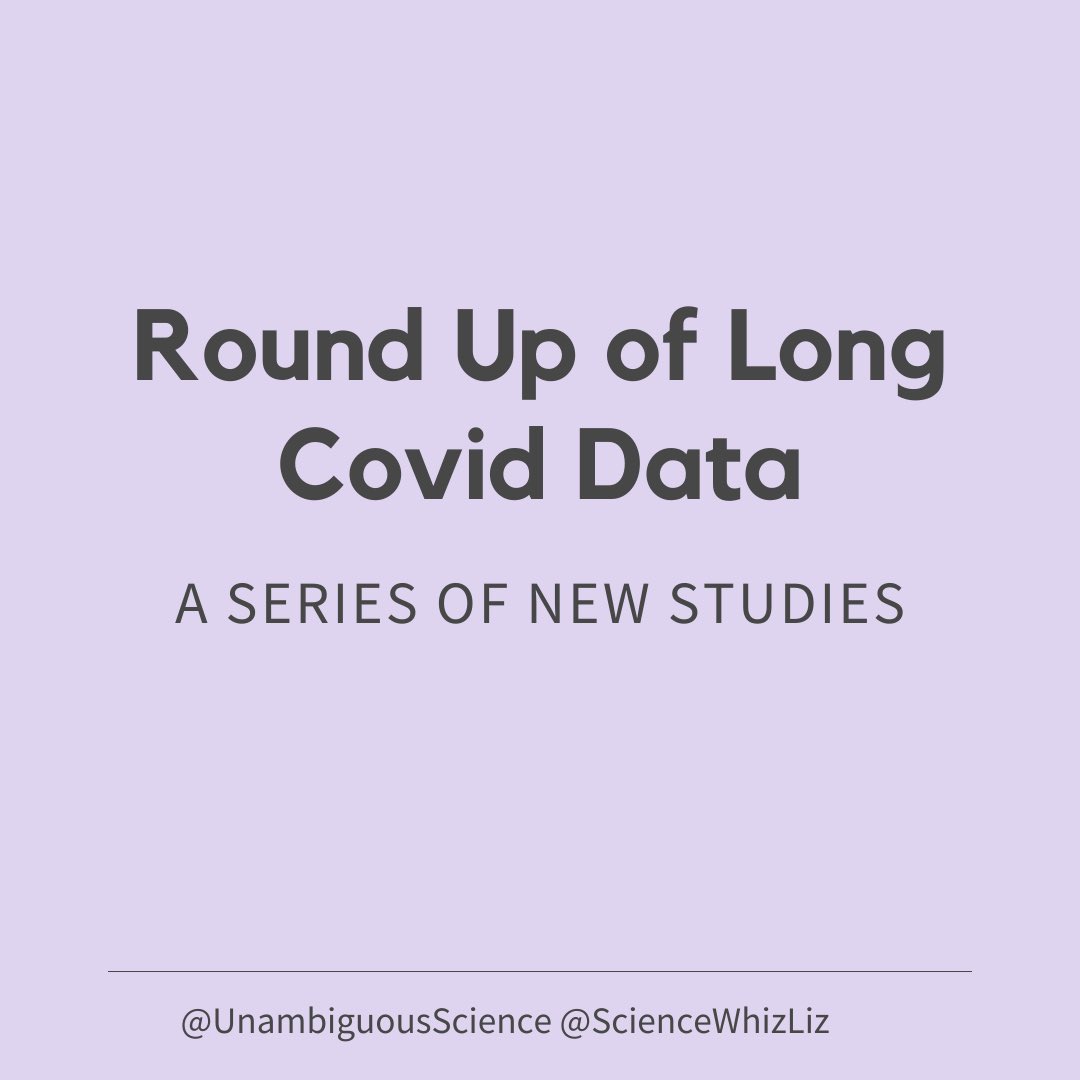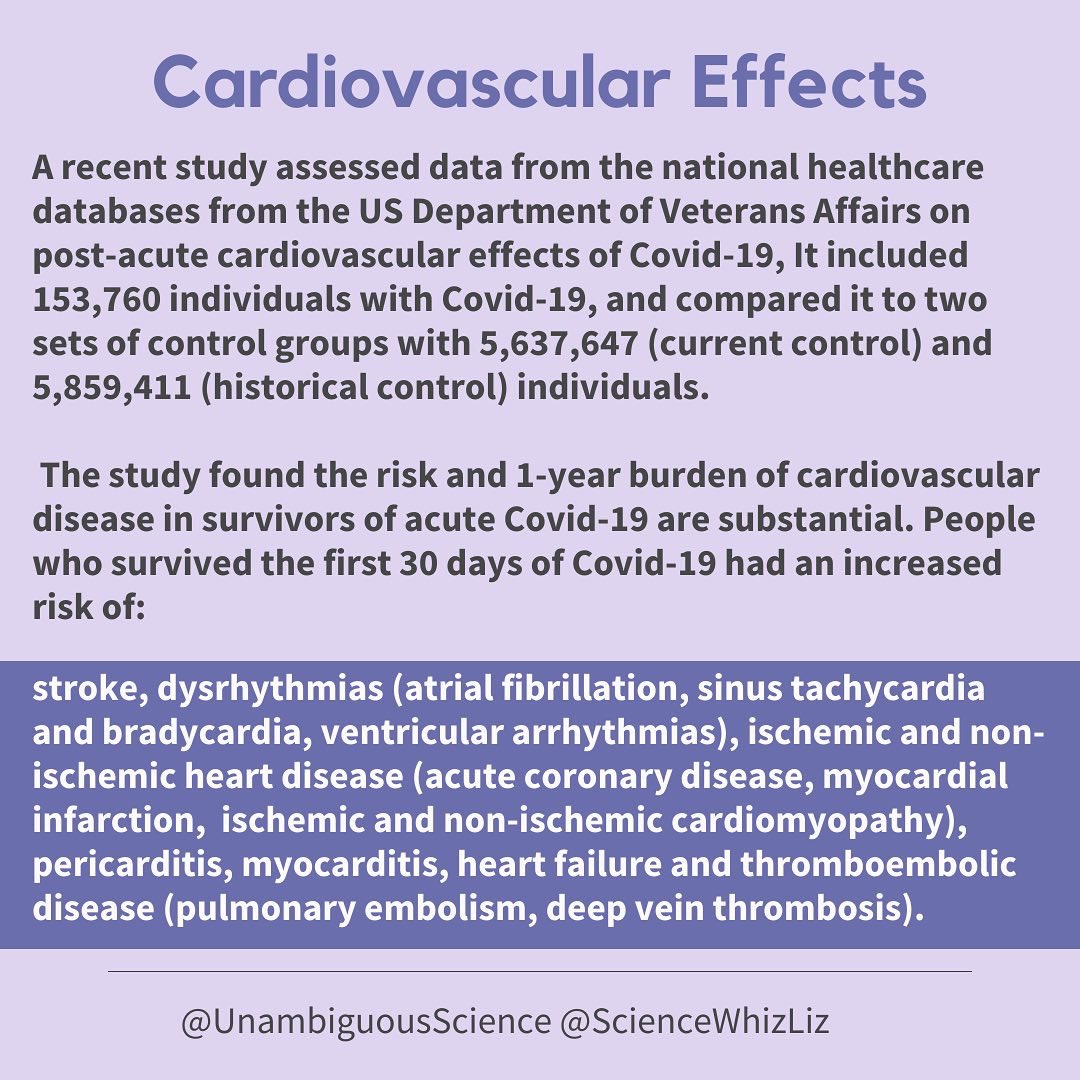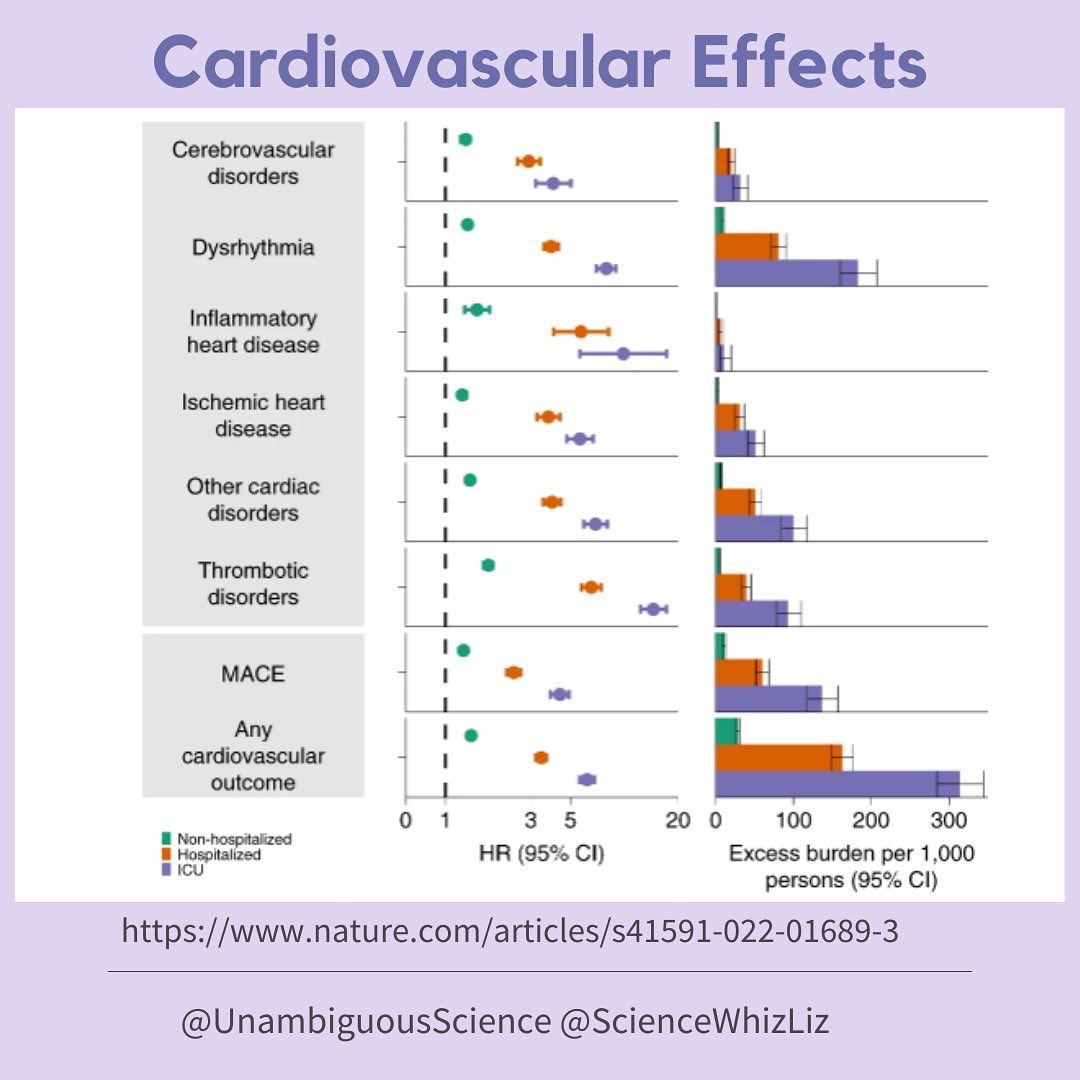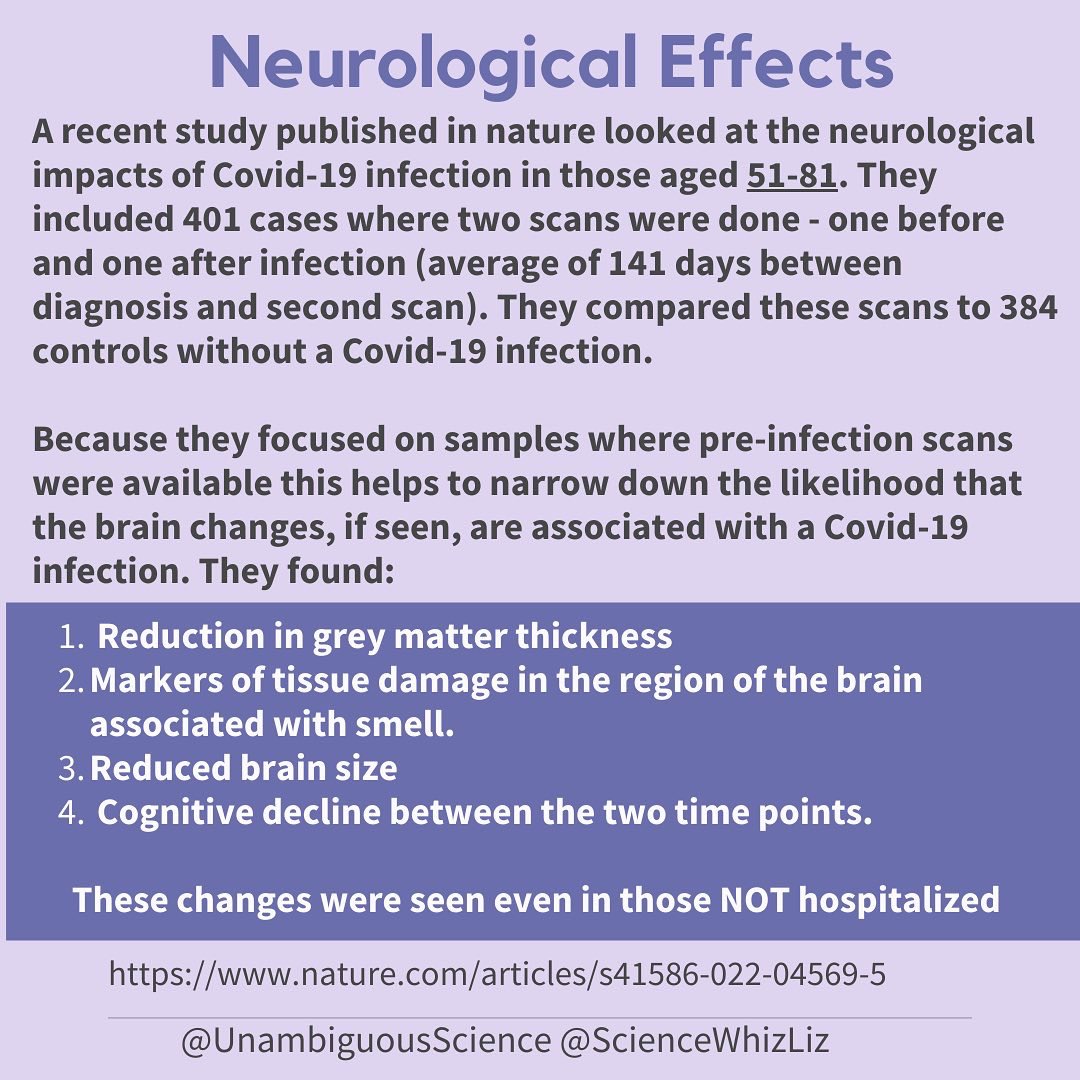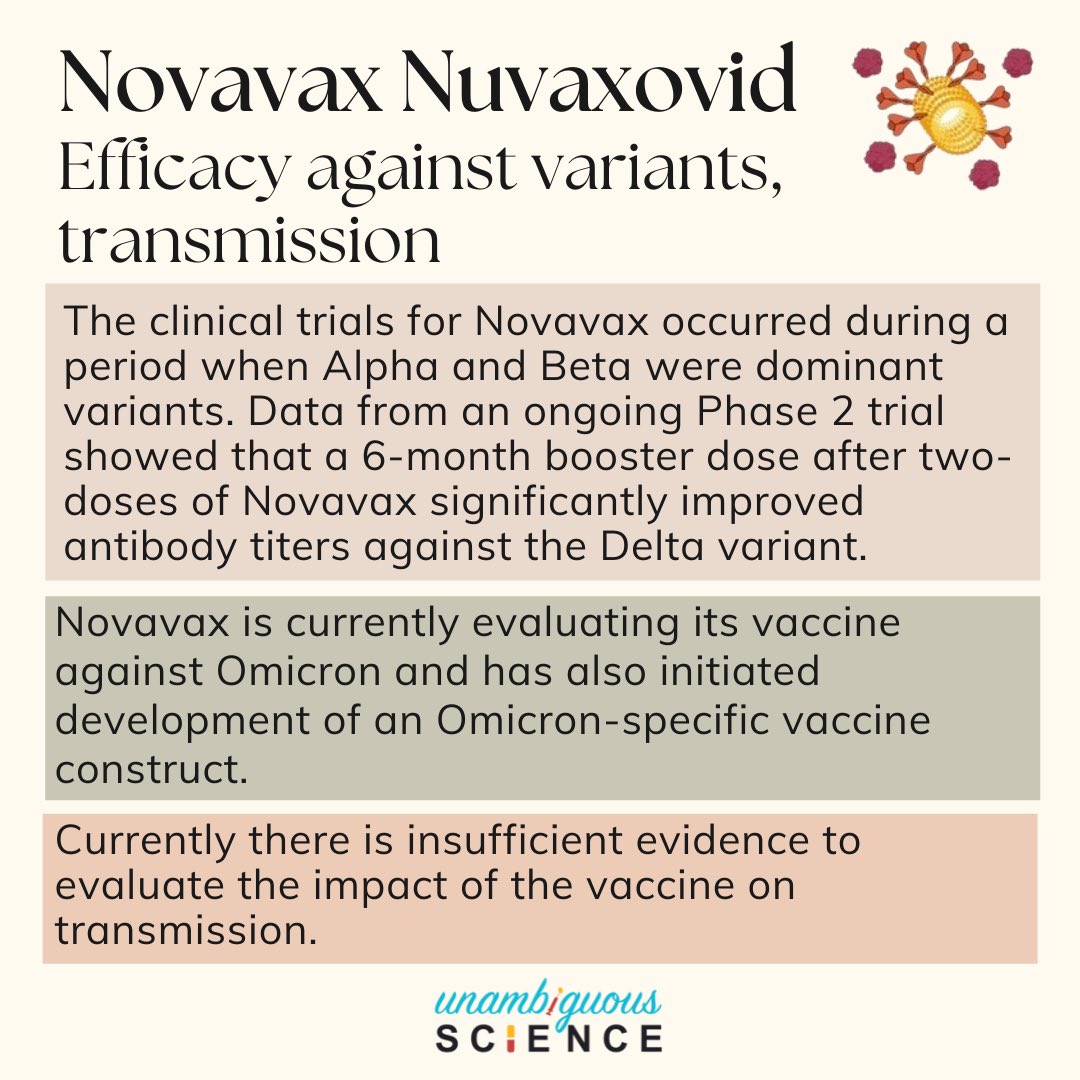
The amazing @DrSamiraJeimy and I collaborated on a post because we are both tired of seeing the term ‘immunity debt’ being thrown around.
We also get into why we are seeing a record number of pediatric hospitalizations, so stick with us.
🧵(1/8)
We also get into why we are seeing a record number of pediatric hospitalizations, so stick with us.
🧵(1/8)

So what is this ‘immunity debt’ concept?
Claims that lack of exposure to infections weakened children's immune systems, causing them to have severe infections.
There is no evidence that this is real.
(2/8)
Claims that lack of exposure to infections weakened children's immune systems, causing them to have severe infections.
There is no evidence that this is real.
(2/8)

In the absence of infections, the immune system does not lie dormant & weaken. We are constantly exposed to & co-exist with, trillions of viruses, bacteria & fungi.
Lack of infections does not weaken the immune system. But some infections, like measles and COVID-19, can. (3/8)
Lack of infections does not weaken the immune system. But some infections, like measles and COVID-19, can. (3/8)
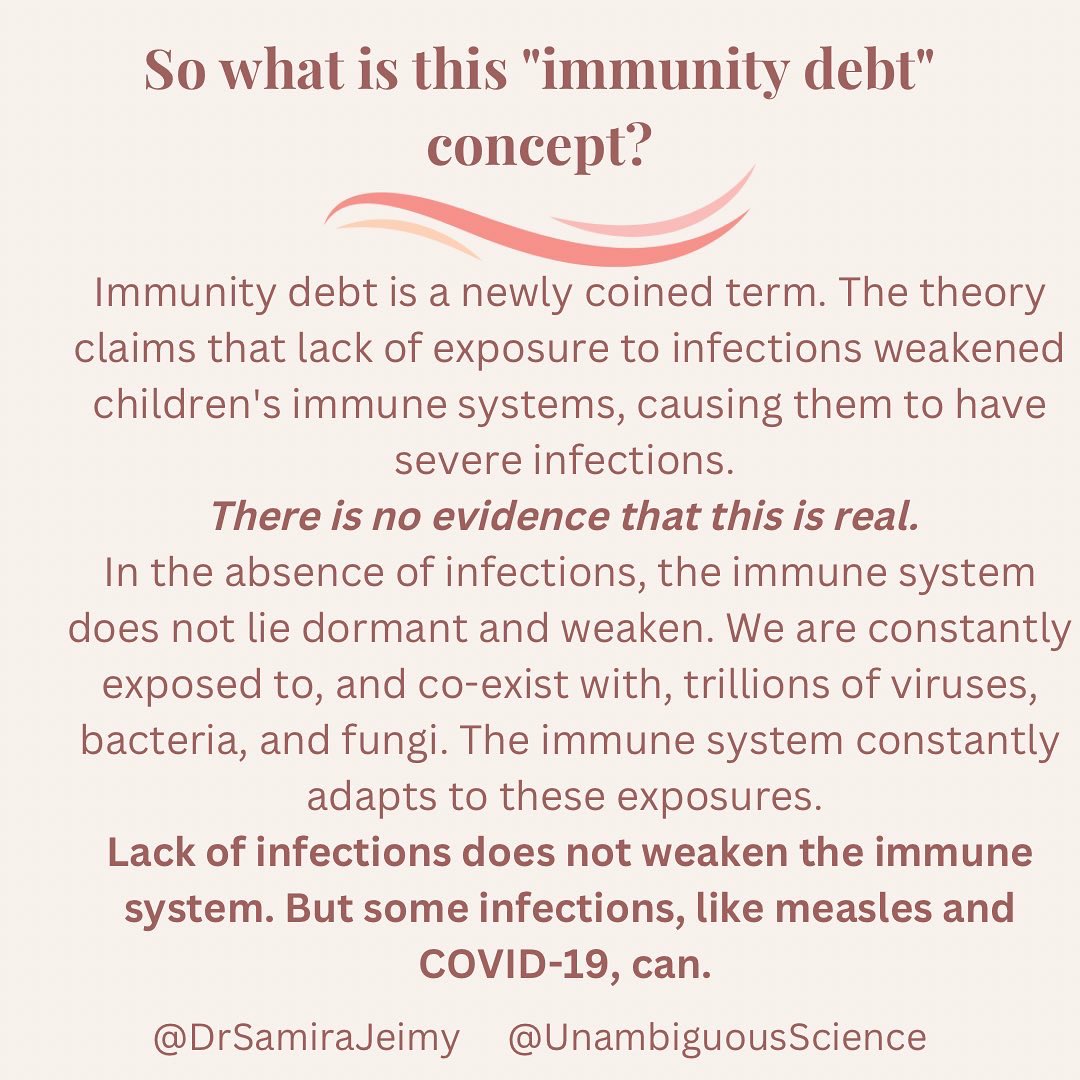
Pediatric hospitals are filled with sick children. What is going on?
While numbers of RSV & influenza are not higher than last yr at this time, MORE children are hospitalized than last yr. So higher proportion of children are coming to hospital with severe illness. (4/8)
While numbers of RSV & influenza are not higher than last yr at this time, MORE children are hospitalized than last yr. So higher proportion of children are coming to hospital with severe illness. (4/8)
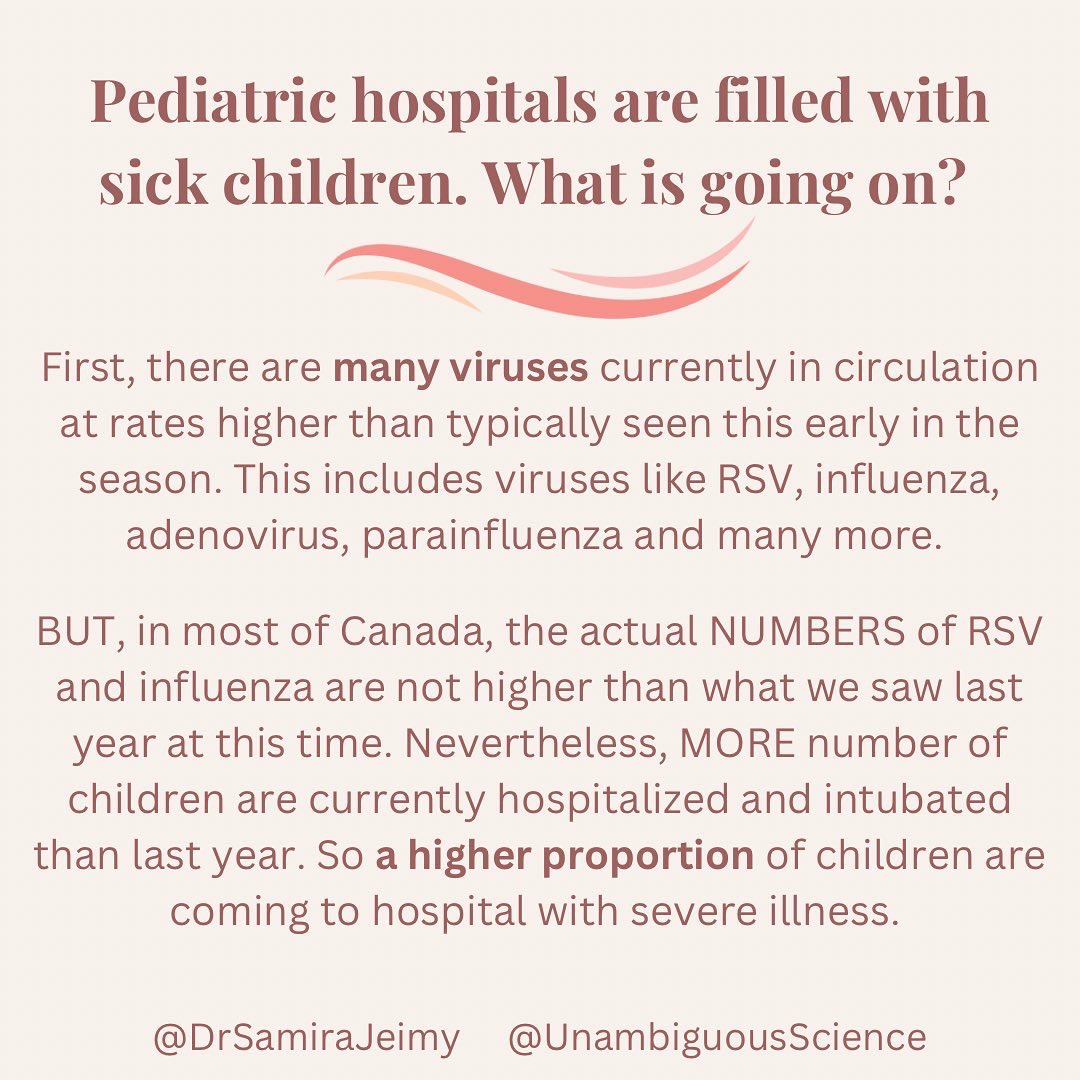
Why is this occurring?
With removal of public health measures such as masking, many viruses are spreading widely. Given we have had a break from these, most of the population is susceptible & exposed again at the same time. But doesn’t explain the higher % of sick kids. (5/8)
With removal of public health measures such as masking, many viruses are spreading widely. Given we have had a break from these, most of the population is susceptible & exposed again at the same time. But doesn’t explain the higher % of sick kids. (5/8)
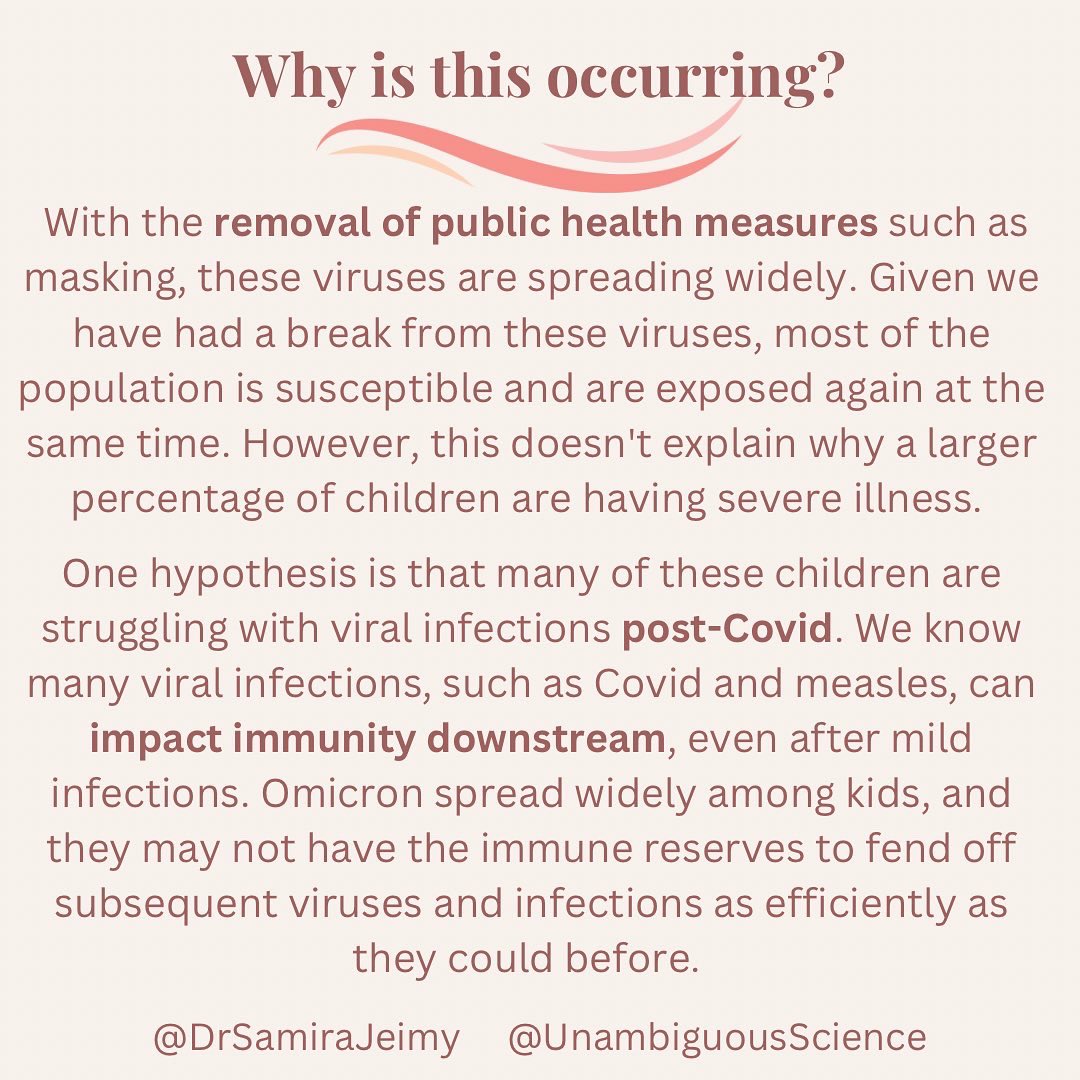
One hypothesis: We know many viral infections, such as Covid and measles, can impact immunity downstream, even after mild infections.
Omicron spread widely among kids, & they may not have immune reserves to fend off subsequent viruses & infections as efficiently as before. (6/8)
Omicron spread widely among kids, & they may not have immune reserves to fend off subsequent viruses & infections as efficiently as before. (6/8)
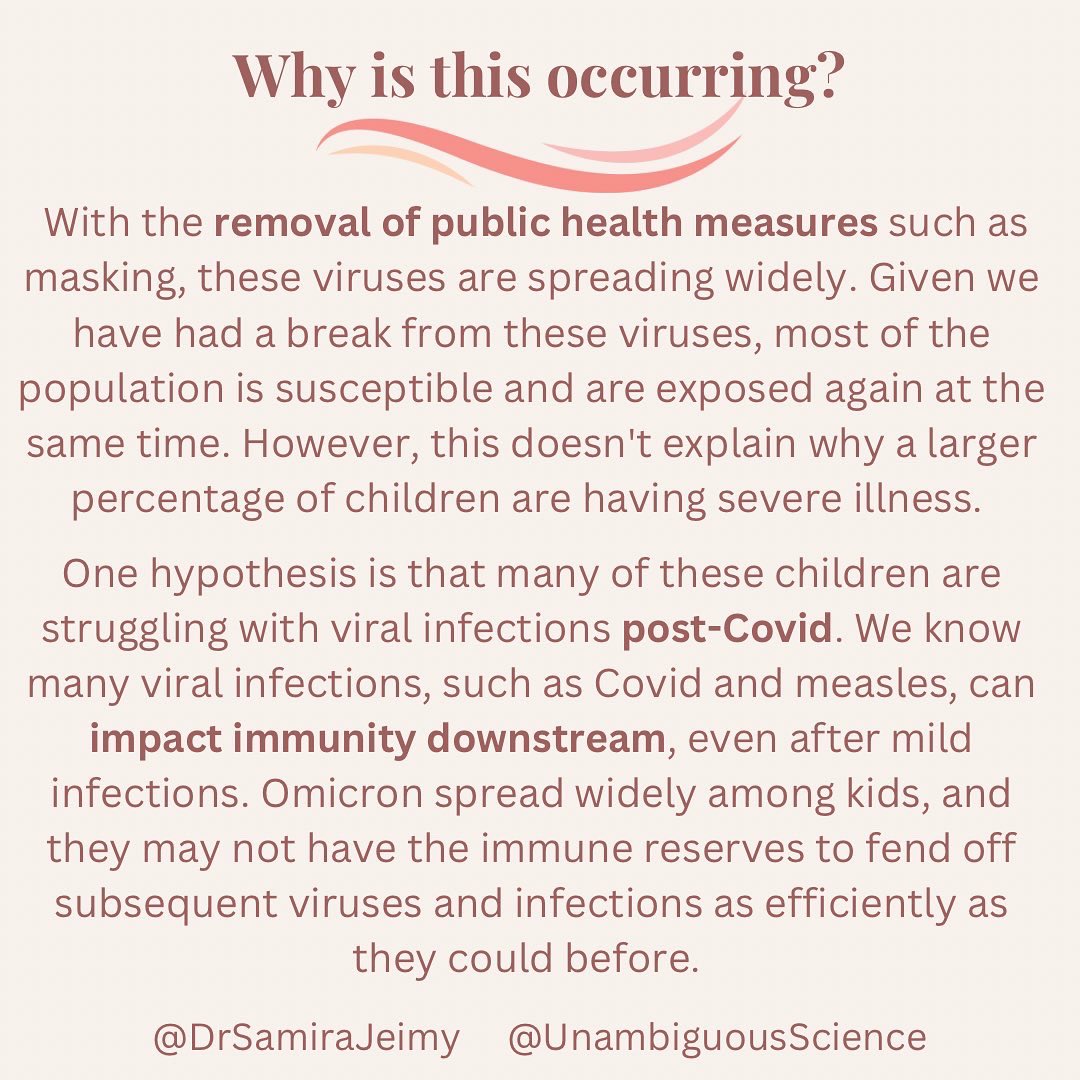
To add, there is a massive healthcare staffing crisis. Healthcare workers are sick themselves, leaving healthcare due to being burnt out & underpaid. Without staff, hospital beds are in short supply.
Also, there is an ongoing shortage of fever reducing meds for children. (7/8)
Also, there is an ongoing shortage of fever reducing meds for children. (7/8)
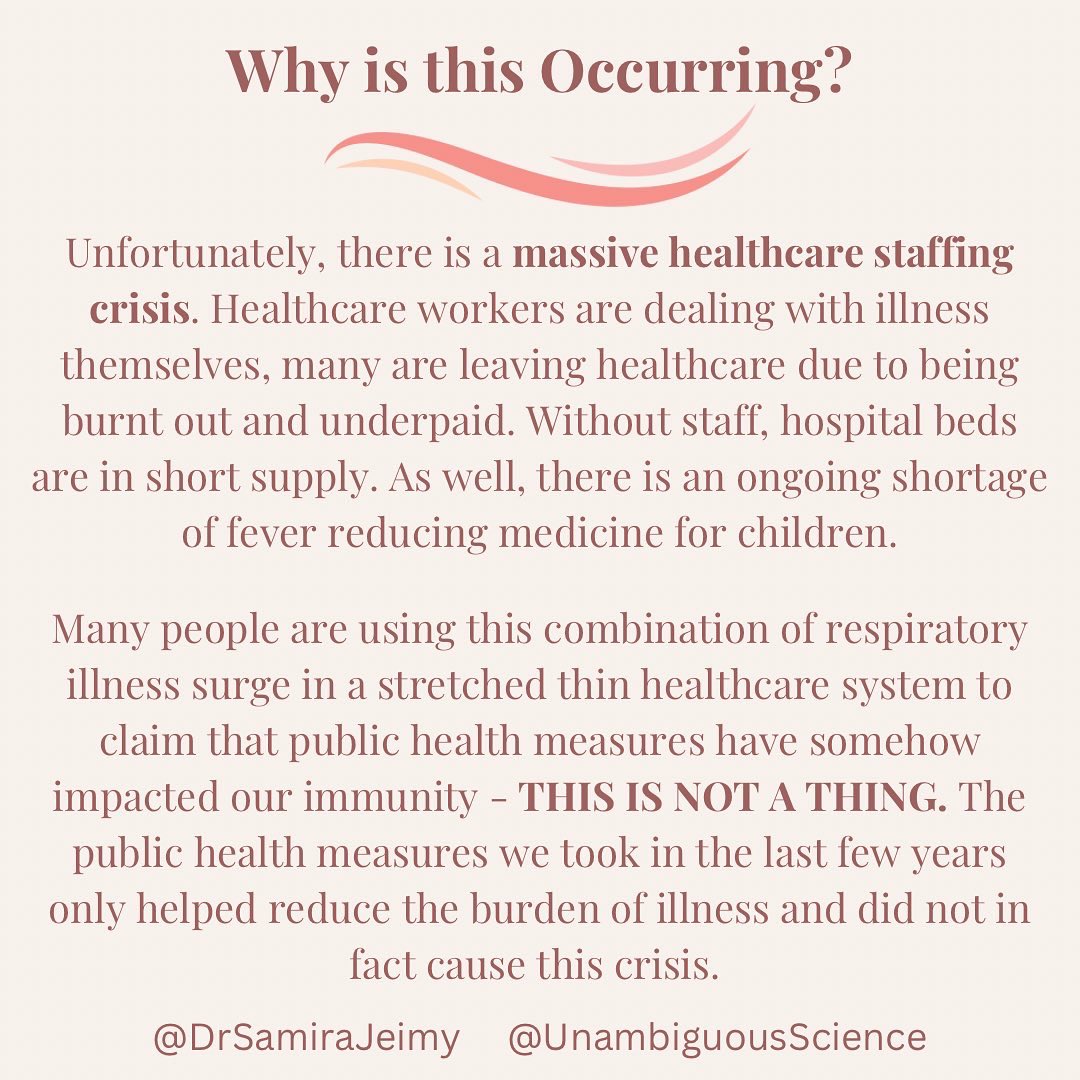
Many are using this crisis to claim that public health measures have somehow impacted our immunity - THIS IS NOT A THING.
The public health measures we took in the last few years only helped reduce the burden of illness and did not in fact cause this crisis. (8/8)
The public health measures we took in the last few years only helped reduce the burden of illness and did not in fact cause this crisis. (8/8)
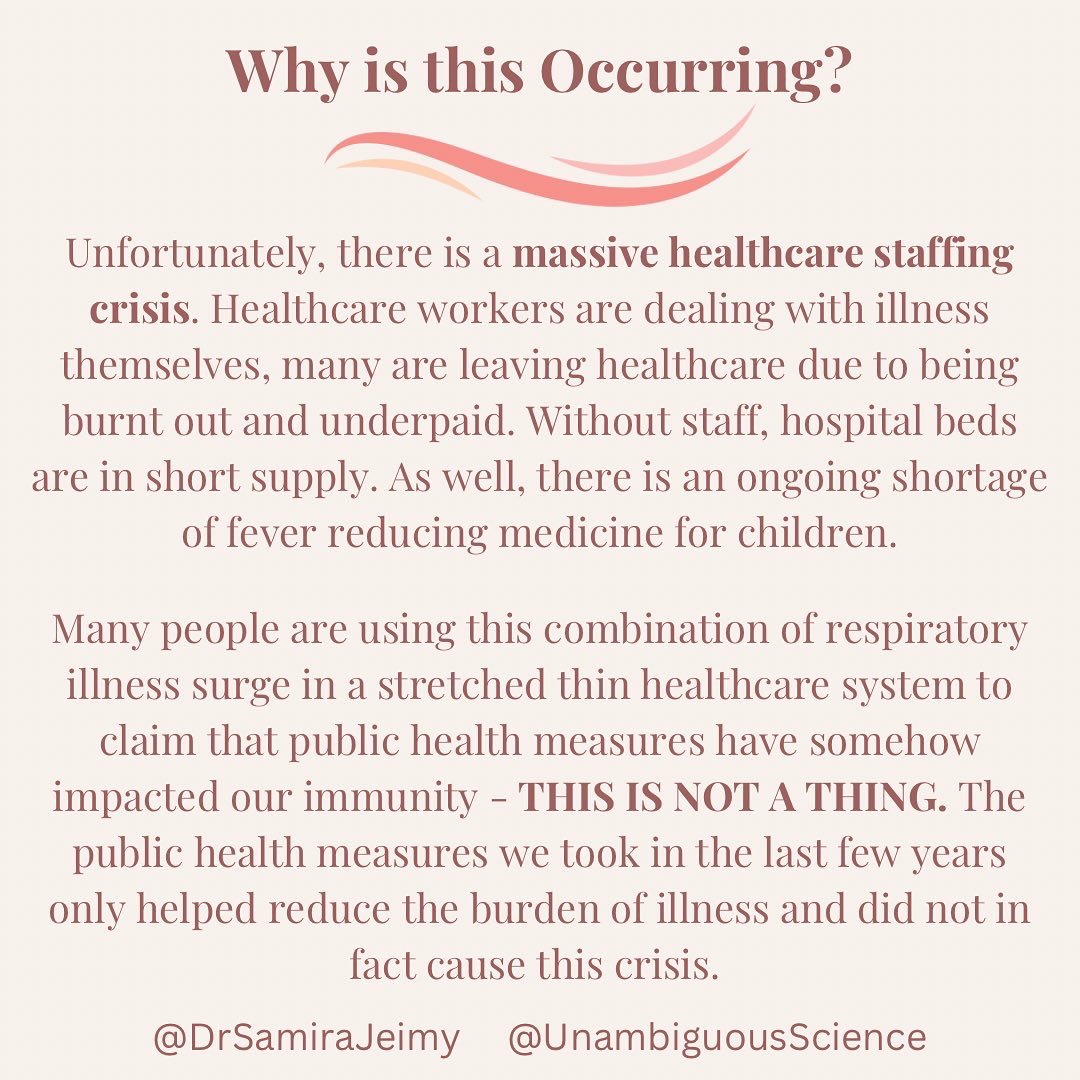
• • •
Missing some Tweet in this thread? You can try to
force a refresh




